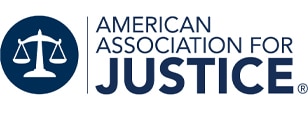
COOK, p.c. is strictly a plaintiff’s civil litigation firm headquartered in Atlanta, Georgia. Our team of trial lawyers has tried and won cases all over the country.

Call Us For A Free Consultation
Cook, p.c. is a recognized leader in the representation of railroad employees who have been injured in the course of their employment. Our attorneys are experienced in prosecuting worker’s claims for personal injury and wrongful death under the Federal Employers’ Liability Act (FELA) which controls employee claims against railroad employers and is the exclusive remedy for on-the-job injuries.
In 1908, Congress passed the Federal Employers’ Liability Act (FELA) in response to thousands of railroad worker deaths and work-related injuries in the late 1800′s and early 1900′s. This special federal legislation was enacted to provide railroad employees a safe workplace and give them and their families the right to recover compensation if injured in a railroad related accident.
Under this law, injured employees can seek compensation for wage loss, future wage loss, medical expenses and treatments, pain and suffering, and partial or permanent disability. If an employee is killed on the job, survivors are entitled to recover damages for what they have suffered because of the death. In the words of the United States Supreme Court Justice William Douglas, FELA was “intended to place upon the railroad employer the burden of the lives and limbs [and lungs] consumed in the wake of the railroad’s dangerous operations.” Under FELA, railroads have a non-delegable duty to provide their employees with safe places to work. They must also provide safe equipment, tools and proper working conditions for their employees. If any railroad fails to take these safety measures, or if the employee is injured through the carelessness of any other employee, the railroad is held responsible. It is liable to the worker for any injuries or damages he may suffer as a result. FELA provides damages to workers who are injured due to:
FELA entitles railroad workers to recover damages for loss of wages (including future wages), pain and suffering, mental anxiety, partial and permanent disability, and past and future medical expenses relating to the worker’s on-the-job injury.
FELA permits an injured worker to recover damages where the railroad has violated the Safety Appliance Act and/or the Locomotive Inspection Act. The Safety Appliance Act imposes liability on railroads relating to railroad cars and their safety devices. Under the Safety Appliance Act, railroads have strict (absolute) liability if an accident is caused by defective appliances, such as couplers, hand brakes, grab irons, steps, ladders, etc. In such cases, the worker does not have to prove negligence to recover from the railroad. The Locomotive Inspection Act requires that the railroad keep locomotives and tenders in proper and safe condition. A violation of the Locomotive Inspection Act also imposes strict (absolute) liability on the railroad.
On-the-Job Accidents can lead to physical injuries to every part of your body as well as psychological injuries.
Workplace Exposure Injuries: from exposure to dust, diesel fumes, asbestos, chemicals, noise or other workplace hazards. These injuries include:
Do not accept any attempt by the railroad to settle or delay your case without consulting an attorney.
Does your attorney understand the unique protections afforded railroad employees under the Federal Employers’ Liability Act?
The attorneys of Cook, p.c. have more than forty years of combined experience litigating against railroads across the country as well as ten years of railroad operations experience. We are able to provide our clients with railroad specific knowledge and expertise that is unmatched.
Claims under FELA are different from other types of personal injury law in that FELA grants specific protections relating to burden of proof, strict liability, causation, and negligence standards. There is no “assumption of the risk” in FELA cases, and the railroad has a non-delegable duty to provide their employees with a safe place to work.
Is your attorney familiar with railroad operations? Does he understand the working conditions and specific terminology related to working at the railroad? Were you hurt kicking cars, hosteling engines, or while working as an RCO switchman? Railroad operations have a long and complicated history that comes with a unique set of hazards and a terminology unlike any other. Were you assigned to a hump yard or a flat yard? Were you operating a conventional or wide-body locomotive?
In addition to being familiar with railroad specific terminology and working conditions, your FELA attorney must be understand railroad claims handling procedures, and Railroad Retirement Board benefits and procedures. Further, they need to understand the specific requirements of the Safety Appliance Act and the Locomotive Inspection Act. To ensure that the FELA’s railroad worker specific rights are enforced to the workers greatest advantage, an attorney must have significant training and experience working with FELA, its statute specific guarantees to railroad workers, and the special dangers and risks associated with long-term railroad employment. Dangers to railroad workers are unique, and the attorneys of Cook, p.c. have years of experience litigating on behalf of hundreds of injured railroaders.






COOK, p.c. is strictly a plaintiff’s civil litigation firm headquartered in Atlanta, Georgia. Our team of trial lawyers has tried and won cases all over the country.